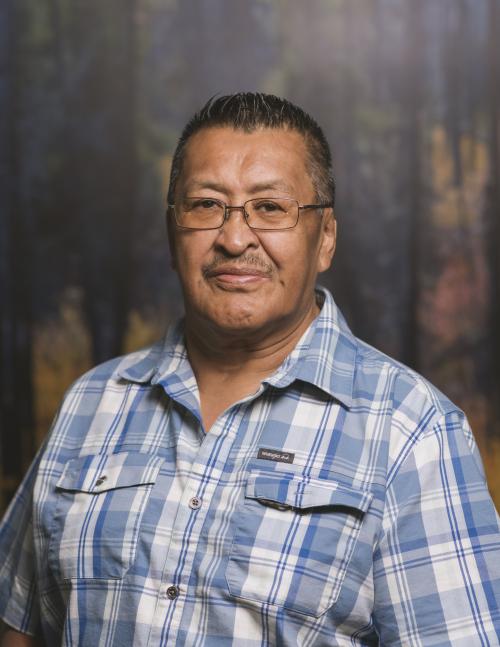William Koe, born and raised in Fort McPherson, comes from a large family and today has a large family himself, with around a dozen grandchildren.
William completed high school in Yellowknife and then returned to his home community, where he soon after got a job working in the oil industry during the oil boom in the Beaufort Delta. He worked on the seismic crew, a job that led him to take further training in Edmonton. He worked on drilling rigs until the late 1980s, when he sought a new direction in life.
In the 1990s, William pursued management studies in Yellowknife and became actively involved in land claims negotiations for his community. This work led him to serve as a councillor on the Teetl'it Gwich'in Band Council from 1992 until 1994, and later as chief from 1996 until 1998. William's leadership role continued as he was re-elected chief in 2010, serving until 2016. Although he attempted to retire, William found himself back at work, taking on a role with the territorial government this time.
Throughout his life, William has been deeply connected to his Indigenous culture and traditional knowledge. He grew up living on the land, learning essential skills like hunting, fishing, and trapping from his family.
He said his experience growing up on the land, combined with his experience working in oil and gas and on land claim negotiations, gave him the confidence to sit on the Gwich'in Land and Water Board.
He believes that overseeing activities on the land is crucial to maintaining the environment's health and ensuring that future generations can continue to live on the land and practice their traditional ways of life. William emphasized the importance of this oversight in safeguarding the environment, particularly in areas like the Peel Watershed and Fort McMurray, where potential contaminants could impact the ecosystem. He stressed the need for vigilance in maintaining the land and water’s health.
“That's really important to us, and that's why I sit on one land and water board, because you’ve got to be prepared for anything that could happen to our country,” he said. “We keep an eye on any activity that's happening in the community, and any kind of activity that takes place.”
